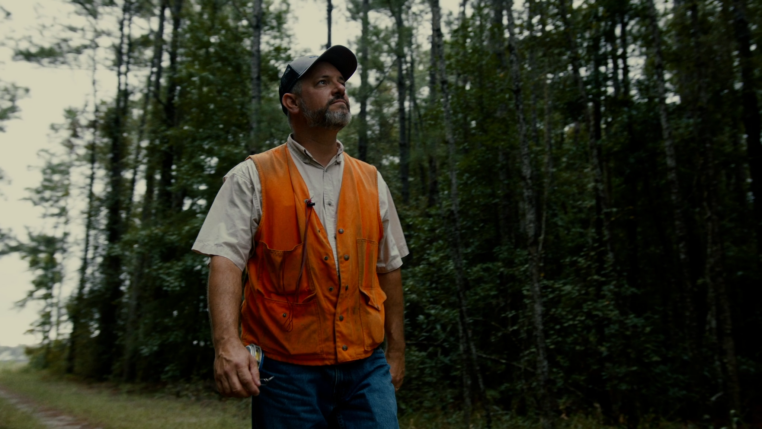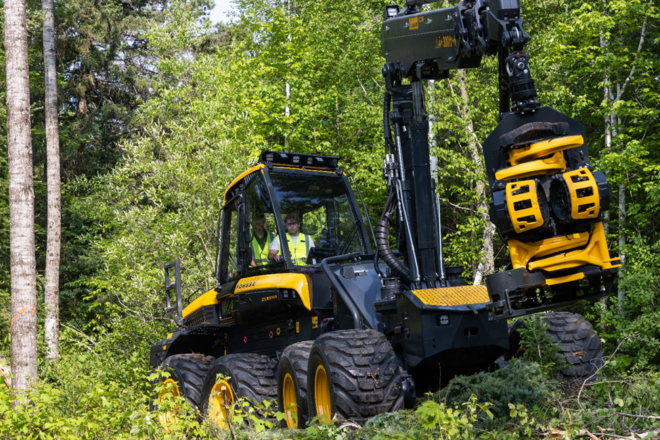An Overview of the Division of Forestry & Natural Resources at West Virginia University
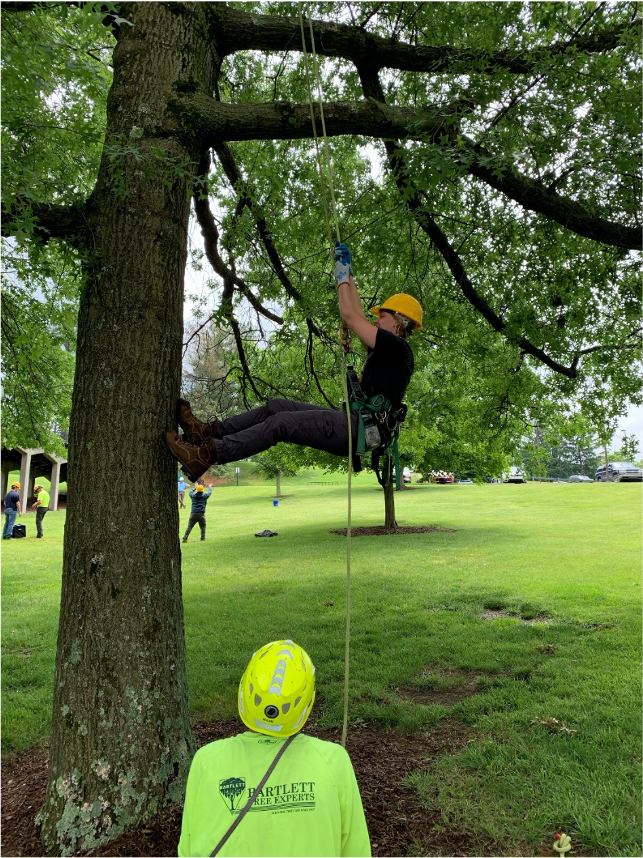
The West Virginia University (WVU) Division of Forestry & Natural Resources (DFNR) at the Davis College of Agriculture, Natural Resources and Design has been actively teaching forestry as part of the University’s Land Grant Mission since 1936. We are situated in the heart of the temperate hardwood forests of Appalachia — the Division has focused on this unique forest environment through our research, teaching, and outreach in forestry and forest management. Our program is fully accredited by the Society of American Foresters (SAF), the Society of Wood Science and Technology (SWST), and the American Landman Association (ALA). We offer four undergraduate degrees, three master’s degrees, and one overarching Doctorate degree in Natural Resources. Our undergraduate programs emphasize forestry, wood science, energy land management, recreation, and wildlife and fisheries.
Teaching
WVU’s undergraduate Forest Resources Management major is accredited by the Society of American Foresters (SAF). Students majoring in Forestry at WVU focus on one of three areas for their professional education:
- Forest Resources Management (FRM)
- Forest Ecosystem Science
- Arboriculture and Urban Forestry
Our forestry students are highly prepared for their careers through comprehensive course-based field labs, a six-week, hands-on summer field experience, a capstone forest management experience, and a technical skills evaluation prior to graduation. Many of the courses in the forestry curriculum have a field-based component, including dendrology, forest mensuration, forest ecology, and silviculture. Most, if not all, of our FRM students, are either employed or enrolled in graduate school at graduation.
We also offer an SWST-accredited Bachelor of Science (BS) program in Wood Science and Technology, which emphasizes mill and forest operations and sustainable construction. Students graduating from this program generally have multiple employment offers.
DFNR also boasts one of the few accredited undergraduate programs in Energy Land Management in the eastern U.S. This recently established undergraduate major incorporates a mix of courses (natural resource management, engineering, business, law, and others) to prepare students for careers in the energy sector (coal, oil, and gas). The energy industry heavily recruits graduates from this program, and in the few years since the program was established, every student has found lucrative employment opportunities after graduation.
Students spend a significant amount of time in field-based labs. Over seventy percent of the courses in the FRM major include field-based lab work as part of the course. Many of these labs are conducted on our University Research Forest, a 7,000-acre mixed hardwood forest managed for timber production, wildlife management, and recreation. The Research Forest is also used extensively for our six-week summer field camp, where students have the opportunity to carry out intensive inventory sampling, conduct vegetation and timber stand management exercises, lay out forest roads, study forest hydrology, and develop practical skills in chainsaw safety, CPR, and First Aid.
Programs like our summer field camp are enhanced through the presence of the Division’s Natural Resources Center, created through the generous support of the MeadWestvaco (now WestRock) Corporation. The NRC offers a scenic and spacious setting for courses, meetings, and conferences in the heart of the Research Forest. Visitors to the Center can also hike the Forest Regeneration Trail, a one-mile educational trail specifically designed to provide an educational experience in applied forest management through the guise of a leisurely walk in the forest.
Research
Forestry faculty have active research priorities focused on the central Appalachian forest region. Our research efforts include projects in watershed management and water quality, soil fertility, forest understory communities, nitrogen and carbon cycling, maple syrup production, fire management, habitat restoration, climate-smart forestry, and tree biomechanics. Wood Science research is focused on hardwood products and bio-based materials, with projects into the development of hardwood-based cross-laminated timber (CLT) panels in commercial construction, hardwood densification, and thermo-mechanical treatments, standardizing hardwood log grading systems, promoting more uses for low-value/low-quality hardwoods, and practical biomass energy systems using hardwood harvest and mill residues.
On the Horizon
Four new and diverse opportunities are being developed and established in the Division. These include:
- New Mass Timber Lab – Almost $1.5 million in new funding has been allocated for the development of a research lab system focused on creating new green products from our forests to our cities!
- The Appalachian Forest Entrepreneur Center – creating future business leaders focused on success. As Jason Hubbart, the Director of this new Center, states, “The AFEC promotes opportunities that empower innovators from all forestry and natural resources sectors in WV and Appalachia to turn their ideas into action and their dreams into reality. We are dedicated to improving the quality of life throughout Appalachia through innovations in the forest industry.”
- The Hardwood Research Trust Program – The generous donation of a million dollars by the Richard Bowlby family is being used to support research into expanding the use and increasing the value of low-quality hardwoods throughout Appalachia. In recent years, the Trust has supported critical and timely efforts into hardwood-based CLTs, wood densification, and biobased materials. And contributions from the hardwood industry and key business entrepreneurs have grown the only Trust in the world dedicated to enhancing the value and performance of low-grade hardwoods!
- Designs for a new Natural Resource Complex – Funding has been provided to create designs for a new Natural Resource Complex to house the Division of Forestry & Natural Resources. The designs will focus on a building made from mass timber products, engineered wood, and unique architectural features – all focused on hardwoods!
For more information about the natural resource programs available at WVU, contact Steve Chhin at [email protected]. And remember, think “Hardwoods” when you think of WVU!
What we do in pictures…
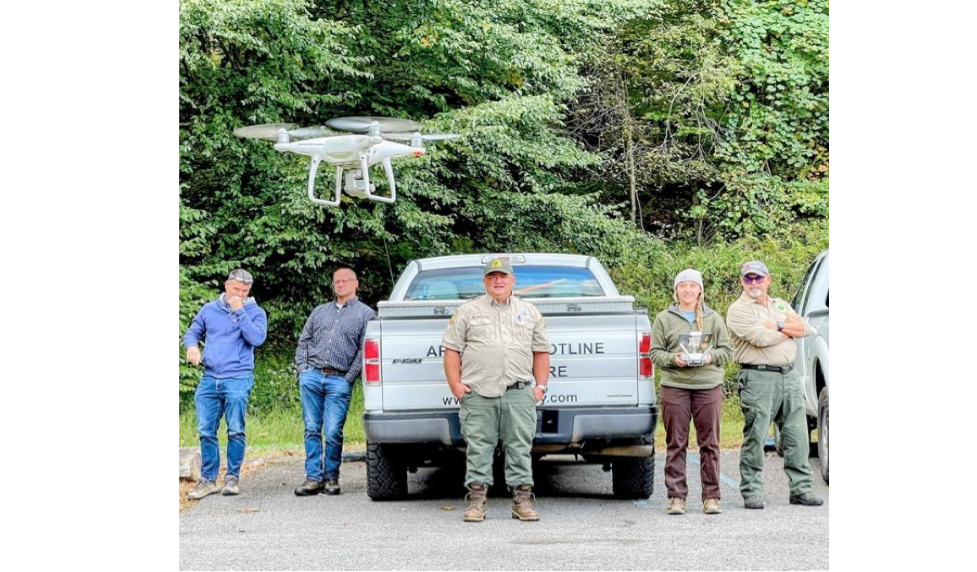
Photo by Dr. Dave McGill.
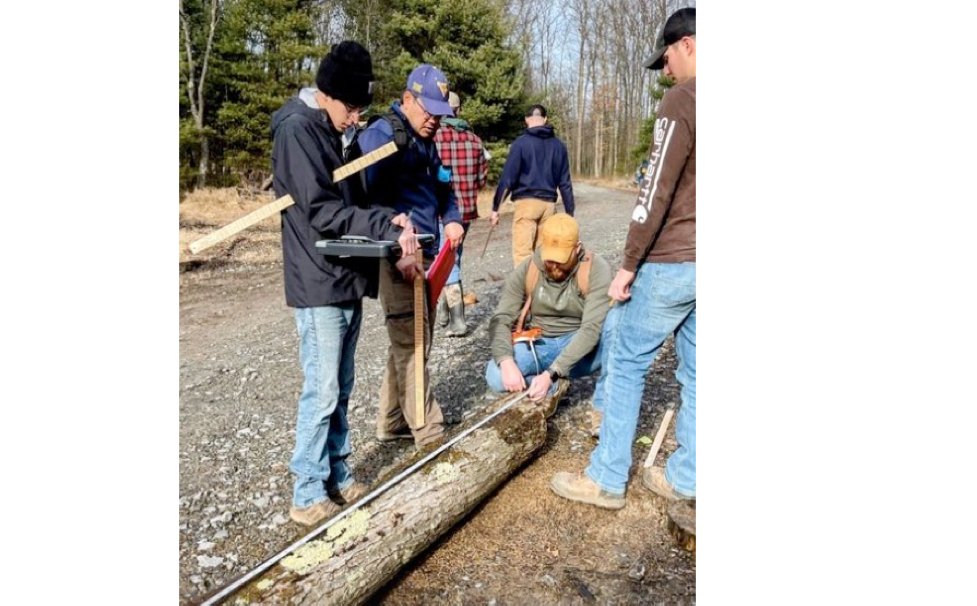
Photo by Dr. Dave McGill.

Photo by Dr. Greg Dahle.

